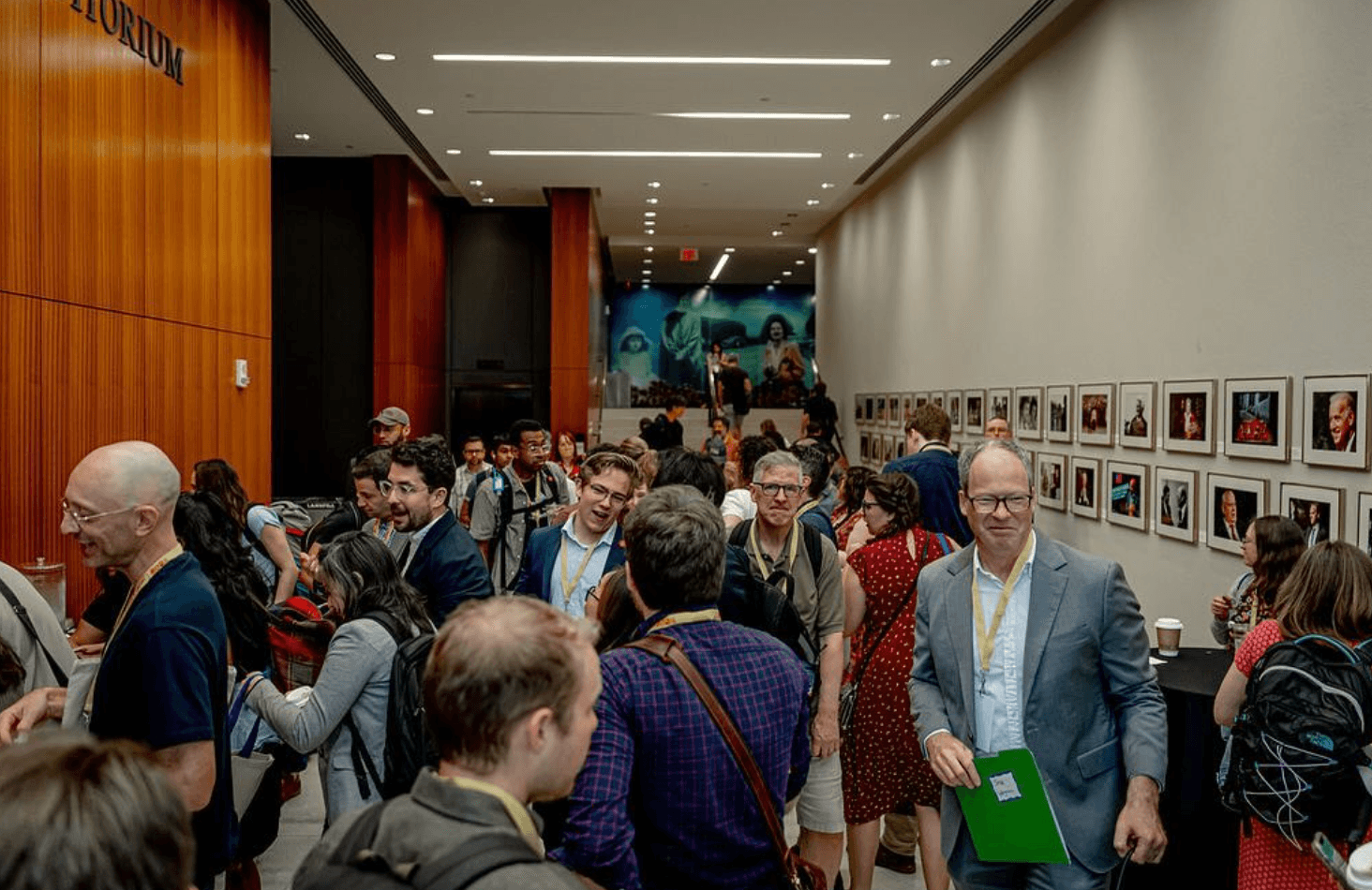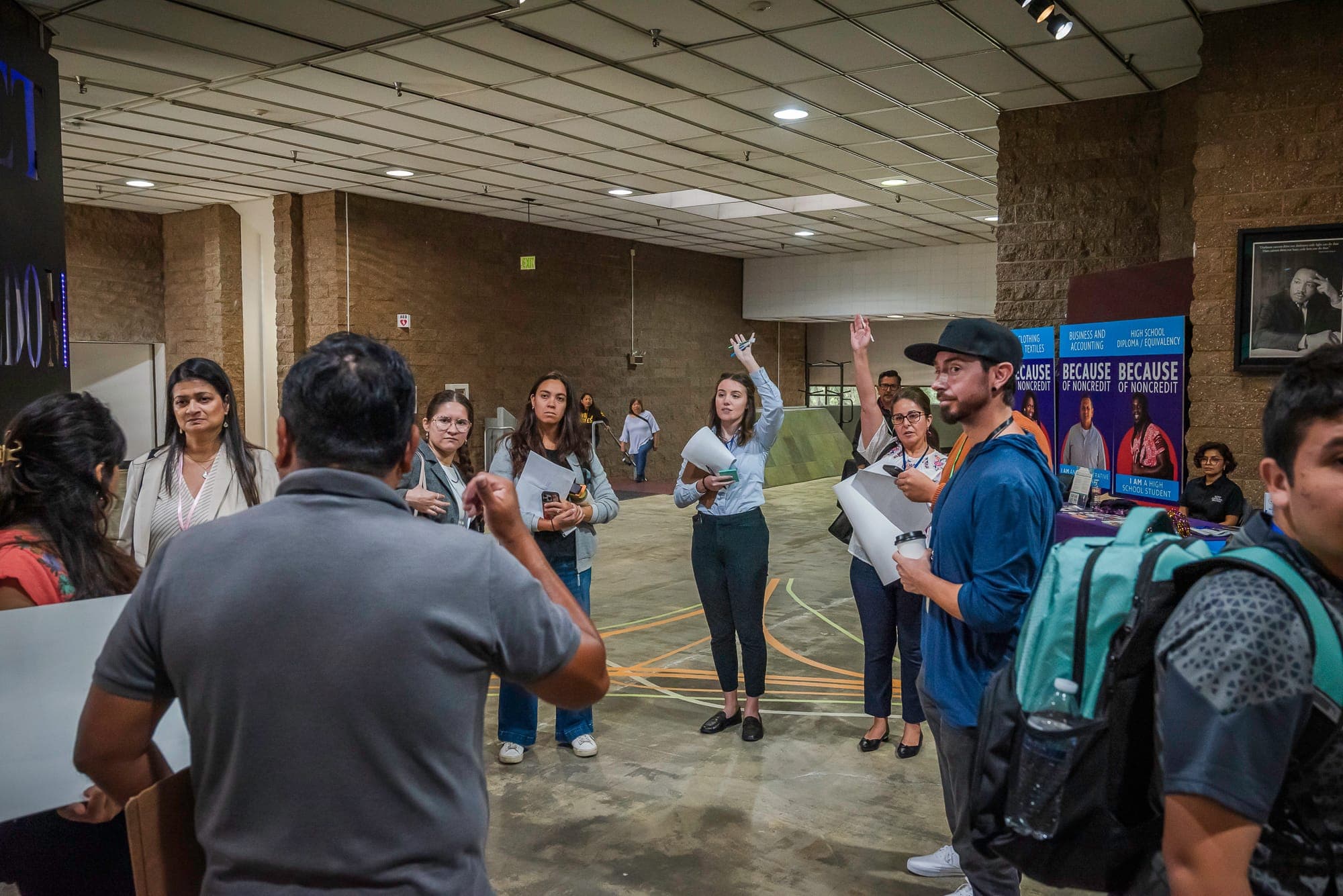
News
By Katharine Burgess, October 1, 2025
Last month, Katharine Burgess, Smart Growth America’s VP of Programs and Operations, attended YIMBYtown 2025, a national pro-housing conference. The conference brought together leaders and advocates from across the country to discuss opportunities to advance more affordable and abundant housing. Excitingly, smart growth housing priorities, such as transportation, climate, and affordability, came through as top issues within the conference programming.
On September 14, I joined over 1,000 advocates in New Haven, Connecticut, to share stories and compare notes on how we are addressing the current housing affordability and access crises. Hosted by DesegregateCT, a program of the Regional Plan Association (RPA), YIMBYtown showcased both the national urgency of the housing crisis and the local flavor of its host city—complete with hundreds of pizzas delivered to keep conference-goers fueled.
Thanks in part to Smart Growth Roundtable member and event host RPA, smart growth was a central theme of the event. Panelists and speakers emphasized that the YIMBY movement will make the biggest impact when it prioritizes location, affordability, transit access, and climate resilience. Housing reform can’t get accomplished alone: It takes transportation reform to open up sites for higher density and economic development opportunities, and recognition of climate risk to ensure future housing isn’t developed on sites that put future occupants' safety, property, and possessions at risk.
The event also showed the tremendous potential that this organizing network has to continue to move the needle, especially if it aligns housing advocacy with smart growth strategies.
The vibe of the event
Daryl Fairweather, PhD, Chief Economist at Redfin, summarized the conference goal in her remarks: “Winning is creating a society where housing affordability is not on people’s minds and it’s not a barrier.” But to get there, she emphasized that advocates need a shared recognition of the problem, and there was broad agreement that housing is the defining issue of our time.
Elected officials at every level echoed this urgency:
- Rep. Brittany Pettersen (D-CO) reminded attendees: “If you can’t put a roof over your head, that is fundamental to the rest of your success.”
- North Dakota Governor Kelly Armstrong (R) highlighted what was on the mind of most of the advocates in the room: To find success in overcoming the obstacles, “You have to have a message that resonates.”
- Hartford Mayor Arunan Arulampalam (D) pointed to the urgency of the moment, warning that if we fail to meet the moment, “shame on us.”
Smart growth highlights
Finding zoning solutions
Speakers and panelists shared strategies and examples of how to reform outdated land-use rules and build coalitions on the ground to deliver more housing in the right places. As attendees were reminded, moving beyond a focus on low-density residential development on the fringes of communities is crucial to creating the more abundant, well-connected, and vibrant communities we are working toward. As Rep. Mike Flood (R-NE) put it: “Think about density, think about infill. People want access to school, the pool, and the convenience store—and that’s also good for social mobility.”
Integrating housing and transportation
The speakers stressed that it’s not one or the other: housing and transportation are two sides of the same coin, and that any progress will mean tackling barriers for both topics. Outdated transportation policies often prevent the density needed for true housing affordability, accessibility, and abundance, while strong transit investments can unlock opportunity. “Housing for cars makes it more expensive to build housing for people,” noted Stephanie Pollack, former Deputy Administrator of the Federal Highway Administration. “To have abundant housing, you need transit,” added Eric Goldwyn of NYU.
Addressing climate risk
Mainstage speakers urged YIMBY advocates to push for homes in places resilient to climate impacts, warning against trading short-term affordability for long-term costs like insurance and maintenance. As Dr. Jenny Schuetz of Arnold Ventures explained: “We want people to feel a sense of urgency—but not so much that they hide under the covers. We need to talk in a way that motivates action, not just fear.”
Focus on outcomes
While YIMBY advocacy has driven wins at the state and local level, attendees emphasized the need to keep pushing. “YIMBY phase 1 is changing the rules. YIMBY phase 2 is getting things built,” said Pollack. Keynote speaker Tamika L. Butler urged the movement to think beyond policy reform: “When I hear we reformed zoning codes, I want to hear who moved in, how they were treated.”
Challenges ahead
YIMBY advocacy has reshaped housing policy across the country, but significant barriers remain. Conference-goers were reminded of this in the conference's backyard, as Connecticut Governor Ned Lamont vetoed a major housing bill earlier this year (and was un-invited from the conference in short order).
SGA's role
At Smart Growth America, we’re working to address the housing crisis by focusing on three key priorities: the types of homes available, where they’re built, and how much they cost to build and live in. At YIMBYtown, I met countless advocates who shared our vision for an abundant housing future. They understand the scope of the challenge, and they recognize that we cannot continue with the same old approaches if we want equitable solutions that will lead to more housing in the right places at the right price. I left New Haven energized and committed to making sure transportation, climate, and long-term outcomes remain central to the conversation.
Related News

© 2026 Smart Growth America. All rights reserved
Site By3Lane Marketing













